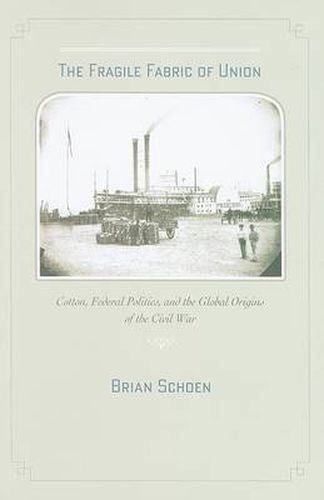Readings Newsletter
Become a Readings Member to make your shopping experience even easier.
Sign in or sign up for free!
You’re not far away from qualifying for FREE standard shipping within Australia
You’ve qualified for FREE standard shipping within Australia
The cart is loading…






In this fresh study Brian Schoen views the Deep South and its cotton industry from a global perspective, revisiting old assumptions and providing new insights into the region, the political history of the United States, and the causes of the Civil War. Schoen takes a unique and broad approach. Rather than seeing the Deep South and its planters as isolated from larger intellectual, economic, and political developments, he places the region firmly within them. In doing so, he demonstrates that the region’s prominence within the modern world-and not its opposition to it-indelibly shaped Southern history. The place of King Cotton in the sectional thinking and budding nationalism of the Lower South seems obvious enough, but Schoen reexamines the ever-shifting landscape of international trade from the 1780s through the eve of the Civil War. He argues that the Southern cotton trade was essential to the European economy, seemingly worth any price for Europeans to protect and maintain, and something to defend aggressively in the halls of Congress. This powerful association gave the Deep South the confidence to ultimately secede from the Union. By integrating the history of the region with global events, Schoen reveals how white farmers, planters, and merchants created a Cotton South, preserved its profitability for many years, and ensured its dominance in the international raw cotton markets. The story he tells reveals the opportunities and costs of cotton production for the Lower South and the United States.
$9.00 standard shipping within Australia
FREE standard shipping within Australia for orders over $100.00
Express & International shipping calculated at checkout
In this fresh study Brian Schoen views the Deep South and its cotton industry from a global perspective, revisiting old assumptions and providing new insights into the region, the political history of the United States, and the causes of the Civil War. Schoen takes a unique and broad approach. Rather than seeing the Deep South and its planters as isolated from larger intellectual, economic, and political developments, he places the region firmly within them. In doing so, he demonstrates that the region’s prominence within the modern world-and not its opposition to it-indelibly shaped Southern history. The place of King Cotton in the sectional thinking and budding nationalism of the Lower South seems obvious enough, but Schoen reexamines the ever-shifting landscape of international trade from the 1780s through the eve of the Civil War. He argues that the Southern cotton trade was essential to the European economy, seemingly worth any price for Europeans to protect and maintain, and something to defend aggressively in the halls of Congress. This powerful association gave the Deep South the confidence to ultimately secede from the Union. By integrating the history of the region with global events, Schoen reveals how white farmers, planters, and merchants created a Cotton South, preserved its profitability for many years, and ensured its dominance in the international raw cotton markets. The story he tells reveals the opportunities and costs of cotton production for the Lower South and the United States.